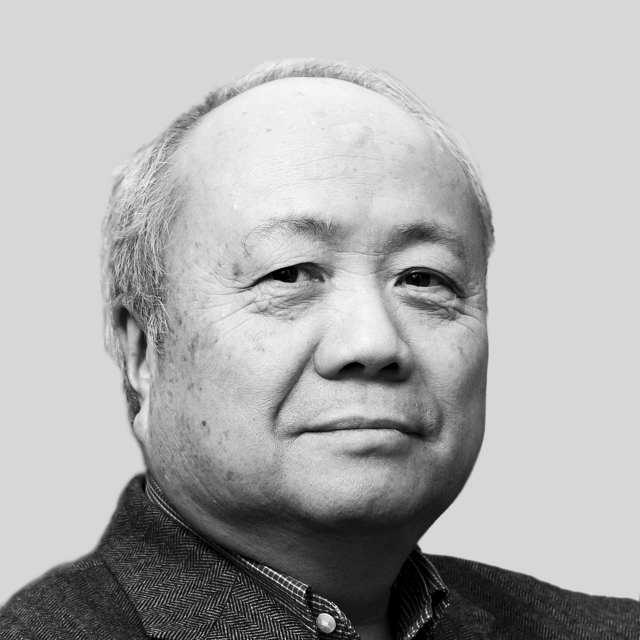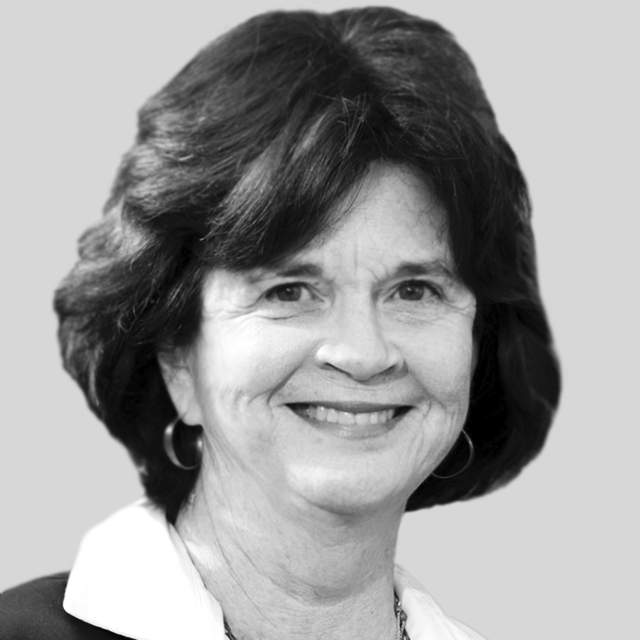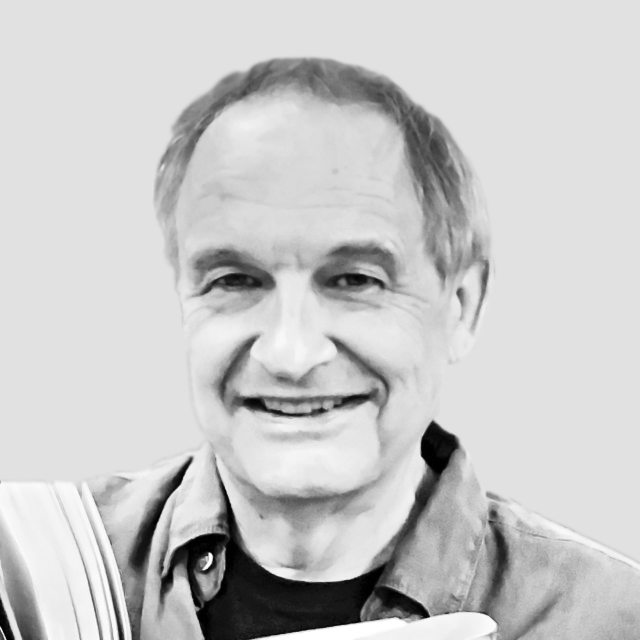The roof and cupola of Princeton University’s Nassau Hall as seen from the back of the building.
Fifteen Princeton University faculty members were transferred to emeritus status in recent action by the Board of Trustees. Transfers are effective July 1, 2021, except where noted.
They are:
- Chih-p’ing Chou, professor of East Asian studies;
- Lynn William Enquist, the Henry L. Hillman Professor of Molecular Biology; effective Jan. 1, 2021;
- Edward Felten, the Robert E. Kahn Professor of Computer Science and Public Affairs;
- Andrew Ford, the Ewing Professor of Greek Language and Literature and professor of classics;
- Olga Peters Hasty, professor of Slavic languages and literatures;
- Michael Jennings, the Class of 1900 Professor of Modern Languages and professor of German;
- Gerta Keller, professor of geosciences;
- Sara McLanahan, the William S. Tod Professor of Sociology and Public Affairs; effective April 1, 2021;
- Alexander Nehamas, the Edmund N. Carpenter II Class of 1943 Professor in the Humanities and professor of philosophy and comparative literature;
- Philip Nord, the Rosengarten Professor of Modern and Contemporary History;
- James Richardson, professor of creative writing in the Lewis Center for the Arts;
- Thomas Shenk, the James A. Elkins Jr. Professor in the Life Sciences; effective September 1, 2021;
- Yakov Sinai, professor of mathematics;
- Marta Tienda, the Maurice P. During Professor in Demographic Studies and professor of sociology and public affairs; and
- Robert Wuthnow, the Gerard R. Andlinger ’52 Professor of Sociology.

Chih-p’ing Chou
Chih-p’ing Chou is known internationally as a scholar of Chinese literature and intellectual history. In his early career, he published on the literature of the late Ming dynasty and then carved out a second influential research profile in the thought of early 20th-century Chinese intellectuals, including Hu Shi, Lu Xun, Feng Youlan and Lin Yutang.
Chou, who joined the Princeton faculty in 1982 after serving as a lecturer in 1979, is the author of “Yüan Hung-tao and the Kung-an School” (1988); “Hu Shi and Modern Chinese Thought” (2002); “Studies in Modern Chinese Intellectual History” (2003); “Hu Shi’s Thought and Modern China” (2012); “Modern Chinese Intellectuals and Cultural Reflections” (2013); “The Sparks of Freedom: Hu Shi and Lin Yutang” (2018); and “Hu Shi’s Romance in America” (2019). He is also the author of more than 20 Chinese textbooks and the co-author, with Susan Egan, of “A Pragmatist and His Free Spirit: The Half-Century Romance of Hu Shi and Edith Clifford Williams” (2009).
For over three decades, Chou directed Princeton’s Chinese language program in East Asian studies. By reforming the program’s curriculum to include a double-track system for heritage and non-heritage learners, Chou attracted more students to the study of Chinese and made Princeton the home of one of the nation’s leading programs. Chou was also the director of the Princeton in Beijing summer language program, which he co-founded in 1993.
Chou earned his bachelor’s degree at Soochow University in Taipei, after which he earned his master’s degree from Tunghai University in Taichung. He received his Ph.D. from Indiana University.

Lynn Enquist
Lynn William Enquist, a leading virologist, came to Princeton in 1993 after nine years as a staff fellow at the National Institutes of Health (NIH) and 12 years in the biotech industry. While at the NIH, Enquist used his knowledge of the bacteriophage λ to construct cloning vectors that could not replicate outside of the laboratory and developed procedures for packing these vectors back into the phage head, allowing efficient transfer of recombinant DNA into cells. He also constructed the world’s first reported viral genome clones, providing a means to study the complex genome arrangements of herpesviruses.
After joining the Princeton faculty in 1993, Enquist designed and taught the course “Viruses: Strategy and Tactics” for upper-level undergraduates and graduate students. As the chair of the Department of Molecular Biology, he upgraded the department’s facilities and revamped undergraduate and graduate curricula. He also helped facilitate the growth of the Lewis-Sigler Institute for Integrative Genomics and the establishment of a neuroscience curriculum and the Princeton Neuroscience Institute. He mentored over 100 trainees and received the President’s Award for Distinguished Teaching in 2001.
Enquist is the co-author of a methods book “Experiments with Gene Fusions” and a popular textbook that was published by the American Society of Microbiology (ASM). He served on and chaired the major virology study section at the NIH, served as the editor-in-chief of the Journal of Virology for a decade, and was the founding editor-in-chief of the Annual Reviews of Virology. He also served as the president of both the American Society for Virology and ASM. He was elected to the American Academy of Arts and Sciences (AAAS) and is a fellow of the AAAS and the American Academy of Microbiology.
Enquist received his bachelor’s degree from South Dakota State University and his Ph.D. from the Medical College of Virginia.

Edward Felten
Edward Felten is a leading expert in information security and technology policy. He earned his bachelor’s degree from Caltech and his Ph.D. from the University of Washington before joining the Princeton faculty in 1993.
In his early career, Felten worked on parallel computing, operating systems, file-system caching strategies, and computer networks. In the mid-1990s, Felten and his graduate students discovered that the new “World Wide Web browser” and the associated Java programming language had many exploitable insecurities. Over the last two decades, Felten has found creative and unexpected ways that computer systems can be vulnerable to attack, and has identified solutions to these threats using cyber defense.
In 2006, Felten became jointly appointed in the Department of Computer Science and the School of Public and International Affairs. He also founded and led Princeton’s Center for Information Technology Policy for 13 years, and created the University’s “Freedom to Tinker” blog, which has become a widely known, multi-author, tech policy publication.
Felten served as Deputy U.S. Chief Technology Officer in the Obama White House and was elected to the National Academy of Engineering in 2013. In his retirement, Felten will continue his work as a member of the U.S. Privacy and Civil Liberties Oversight Board and running his blockchain start-up company, Offchain Labs.

Andrew Ford
Andrew Ford is one of the world’s foremost experts in Greek poetry and prose from Homer through the classical age. The focus of his research has been the history of literary criticism, especially as it involves questions of reception and social dimensions of literary history.
Ford, who joined the Princeton faculty in 1986, is the author of “Homer: Poetry of the Past” (1992); “The Origins of Criticism: Literary Culture and Poetic Theory in Classical Greece” (2002); and “Aristotle as Poet” (2011). He is currently working on a highly-anticipated commentary on Aristotle’s “Poetics.” Ford received the Umhoefer Prize for Achievement in the Humanities and the Gildersleeve Prize for his research.
In 2003, he took up a visiting professorship at the École des hautes études en sciences sociales, Centre Louis Gernet, Paris. Fluent in French, Ford continued throughout his career to engage closely with scholars and students working in several different intellectual traditions and languages.
Ford earned his bachelor’s degree from Cornell University and his Ph.D. from Yale University.

Olga Hasty
Olga Peters Hasty is a major scholar of Russian literature and culture. She has taught graduate and undergraduate courses across a broad spectrum of Russian literature and culture and beyond, including medieval Russian literature, Vladimir Nabokov, 19th- and 20th-century Russian poetry, Russian women writers, drama, and Russian film theory.
Hasty, who joined the Princeton faculty in 1993, is the author of “America through Russian Eyes,” co-authored with Susanne Fusso (1988); “Orphic Journeys in the Worlds of the Word” (1996); “Pushkin’s Tatiana” (1999); and “How Women Must Write: Inventing the Woman Poet” (2019).
Hasty has contributed extensive service to the University through serving as the acting chair of the Slavic department, as the department’s director of graduate studies and as departmental representative. Hasty was also Clerk of the Faculty and has served on many University committees. She has been president of Princeton’s chapter of Phi Beta Kappa since 2015.
She received her bachelor’s degree from Vassar College, her master’s degree from Brown University and her Ph.D. from Yale University.

Michael Jennings
Michael Jennings is a renowned scholar of the German-Jewish philosopher and critic Walter Benjamin, whose English-language reception Jennings singlehandedly shaped as a translator of numerous canonical works.
Jennings’ publications include “Dialectical Images: Walter Benjamin’s Theory of Literary Criticism” (1987); “Walter Benjamin: A Critical Life” (2014); and a series of collections of canonical Benjamin texts that Jennings edited for classroom use, including “The Writer of Modern Life: Essays on Charles Baudelaire”; The Work of Art in the Age of its Technological Reproducibility and Other Writings on Media,” co-edited with Brigid Doherty and Thomas Levin; and “One Way Street.”
Jennings, who joined the Princeton faculty in 1981, was an exceptionally engaged citizen of the University, serving as a member of a wide and extensive range of committees and task forces. As the chair of the Department of German from 1999-2012, he worked to shift the department from its longstanding traditional focus on literature to one that was more vibrantly interdisciplinary. He also served as the department’s director of graduate studies and director of undergraduate studies.
During the 1990s, Jennings spent nine years as head of Rockefeller College. He was appointed as an Old Dominion Professor in the Council of the Humanities and was selected for the Graduate Mentoring Award for outstanding Ph.D. supervision.
His professional service includes memberships on the editorial boards of several journals, as well as directing the Alexander Kluge Research Collection at Princeton University and co-directing, with Ben Morgan and Anthony Phelan, the Oxford-Princeton Research Collaboration in German.
He earned a bachelor’s degree from Dartmouth College, a master’s degree at Yale Divinity School and a Ph.D. from the University of Virginia.

Gerta Keller
Gerta Keller has made fundamental contributions to the scholarship of geosciences. She earned her bachelor’s degree from San Francisco State University and her Ph.D. from Stanford University.
Keller is best known for her research on the mass extinction at the K-Pg boundary, which is when dinosaurs became extinct. While the monolithic consensus contends that the extinction was caused by a gigantic meteorite, her research indicates otherwise. Using microfossil stratigraphy and new isotopic methods, Keller’s research suggests instead that the extinction was driven by catastrophic volcanism that covered the entire western half of what is now India. Her publication list runs to nearly 300 articles, about half of which address the asteroid impact/volcano controversy.
Keller joined the Princeton faculty in 1985 after serving as a visiting associate professor in 1984. For many years, she taught a popular undergraduate course on mass extinctions, which took students on field trips around the world. She has also advised numerous graduate students, several of whom now hold academic positions in the U.S. and abroad.

Sara McLanahan
Sara McLanahan is a preeminent sociologist who conducted pathbreaking research on single parents and their children.
McLanahan, who joined the Princeton faculty in 1990, is the author of over 125 research articles and seven books, including “Single Mothers and Their Children: A New American Dilemma,” with Irwin Garfinkel (1986) and “Growing Up with a Single Parent: What Helps, What Hurts,” with Gary Sandefur (1994), which won the Otis Dudley Duncan Award and the Goode Distinguished Publication Award from the American Sociological Association.
At Princeton, McLanahan founded the Bendheim-Thoman Center for Research on Child Wellbeing (CRCW), an interdisciplinary center of the Princeton School of Public and International Affairs, whose mission is to stimulate basic research, educate faculty and students, and influence policymakers and practitioners on issues affecting children, youth, and families.
McLanahan is an elected member of the American Academy of Arts and Sciences, the American Philosophical Society, the National Academy of Sciences, and the American Academy of Political and Social Science. She has held positions on a number of external advisory boards and committees including the Population Association of America, the Russell Sage Foundation, and the National Poverty Center, and was president of Population Association of America in 2004.
She earned her bachelor’s degree from the University of Houston and her Ph.D. from the University of Texas.

Alexander Nehamas
Alexander Nehamas is one of the world’s leading authorities on the thought of the ancient Greeks. He earned his bachelor’s degree from Swarthmore College and received his Ph.D. from Princeton, where he returned in 1990 as the inaugural Edmund N. Carpenter II Class of 1943 Professor in the Humanities and professor of philosophy and comparative literature.
Throughout his career, Nehamas engaged closely with the thought of Plato and Plato’s teacher Socrates, as well as the thought of Aristotle and Nietzsche. He has published over 100 articles and seven books: “Nietzsche: Life as Literature” (1985); Plato’s “Symposium,” with Paul Woodruff (1989); Plato’s “Phaedrus,” with Paul Woodruff (1995); “The Art of Living: Socratic Reflections from Plato to Foucault” (1998); “Virtues of Authenticity: Essays on Plato and Socrates” (1999); “Only a Promise of Happiness: The Place of Beauty in a World of Art” (2007); and “On Friendship” (2016). He also co- edited “Aristotle’s ‘Rhetoric’: Philosophical Essays,” with David Furley (1994).
While at Princeton, Nehamas served in many roles, including chair of the Council of the Humanities, director of the Program in Hellenic Studies, and founding director of the Society of Fellows in the Liberal Arts. He was also honored with the University’s Howard T. Behrman Award for Distinguished Achievement in the Humanities and the President’s Award for Distinguished Teaching.
He has received numerous professional awards, including the Mellon Distinguished Achievement in the Humanities Award, and was elected as a fellow of the American Academy of Arts and Sciences.

Philip Nord
Philip Nord is a preeminent historian of contemporary France. He earned both his bachelor’s degree and Ph.D. from Columbia University before joining the Princeton faculty in 1981.
Nord spent 40 years in the Department of History, serving as chair from 1995-2001 and as director of the Shelby Cullom Davis Center for Historical Studies from 2012-16. He regularly taught undergraduate and graduate courses on modern France, undertook many collaborations with colleagues in French literature, and advised more than a dozen Ph.D. dissertations.
His work has investigated many different subjects, ranging from Parisian municipal politics to Impressionism, from social policy to the Fall of France to the memory
of wartime deportations. Widely respected by French scholars, five of his six books have been translated into French.
He is the author of “Paris Shopkeepers and the Politics of Resentment” (1986); “The Republican Moment: Struggles for Democracy in Nineteenth-Century France” (1995); “Impressionists and Politics: Art and Democracy in the Nineteenth Century” (2000); “France’s New Deal: From the Thirties to the Postwar Era” (2010); “France 1940: Defending the Republic” (2015); and “After the Deportation: Memory Battles in Postwar France” (2020).

James Richardson
James Richardson is a renowned poet and academic. He earned his bachelor’s degree from Princeton and received his Ph.D. from the University of Virginia. He returned to Princeton in 1980 as a faculty member in the Department of English and the Program in Creative Writing, which he directed from 1980-1993.
During his time at Princeton, Richardson taught beginning and advanced poetry workshops, and courses on nineteenth-century poetry, contemporary poetry, and lyric poetry. Through his courses, his students learned that poetry may be at once fundamental and fun, as evidenced by popular courses such as “Life is Short, Art is Really Short.”
Richardson is the author of “Reservations” (1977); “Second Guesses” (1984); “As If” (1992); “A Suite for Lucretians” (1999); “How Things Are” (2000); “Vectors: Aphorisms and Ten-Second Essays” (2001); “Interglacial: New and Selected Poems and Aphorisms” (2004); “By the Numbers: Poems and Aphorisms” (2010); “During” (2016); and “For Now” (2020).
Other anthologies in which Jim is represented are David Lehman’s “Great American Prose Poems: Poe to the Present” (2003) and “Geary’s Guide to the World’s Great Aphorists,” edited by James Geary (2007).
He has received fellowships from the National Endowment for the Humanities and the New Jersey State Council on the Arts; an award in literature from the American Academy of Arts and Letters; as well as the Emily Dickinson, Robert H. Winner, and Cecil Hemley Awards of the Poetry Society of America.

Thomas Shenk
Thomas Shenk is a distinguished virologist noted for innovative research and leadership in his field. He was a founding member of Princeton’s Department of Molecular Biology, which he chaired from 1996-2004, and a founding member of the Program in Global Health and Health Policy.
Shenk received his bachelor’s degree from the University of Detroit and his Ph.D. from Rutgers University, where he began his career-long fascination with the interactions of mammalian viruses with their host cells. He later expanded his research focus to include human adenovirus 5 (Ad5) and made many important contributions to both of these areas, which were recognized by the Eli Lilly Award in Microbiology and Immunology.
Throughout his career, Shenk maintained an enduring commitment to translational research, or the application of basic knowledge and techniques to address medical needs. He has been issued 16 patents in the U.S. and E.U. and served on the advisory boards of several pharmaceutical and biotech companies. He is also a founder of two companies, one dedicated to the discovery of broadly acting anti-viral drugs and the second focused on development of personalized treatments for cancer.
His professional service includes serving as president of the American Society for Microbiology from 2003-4 and editor-in-chief of the Journal of Virology from 1994-2002. He also served as president of the American Society for Virology from 1997-8 and as a member of the National Science Advisory Board for Biosecurity from 2005-8.
Shenk is a member of the National Academy of Sciences, the National Academy of Medicine, the American Academy of Arts and Sciences, the American Association for the Advancement of Science, and the National Academy of Inventors, and was appointed as a Howard Hughes Medical Institute Investigator.

Yakov Sinai
Yakov Sinai has contributed greatly to the field of mathematics, in particular through his work in mathematical physics and probability theory.
He joined the Department of Mathematics in 1993, and is known for the many mathematical processes and equations that are named after him, including Kolmogorov-Sinai entropy, Sinai’s billiards, Sinai’s random walk, Sinai-Ruelle-Bowen measures and the Pirogov-Sinai theory.
Sinai has received many awards for his extensive contributions to mathematics, most notably the Abel Prize, which is considered the highest mathematical honor.
He received his bachelor’s degree, master’s degree and Ph.D. from Moscow State University.

Marta Tienda
Marta Tienda is a leading sociologist and demographer whose work has centered on the study of the demographic transformation of Hispanics in the U.S. and its implications for U.S. society. She joined Princeton’s faculty in 1997.
Tienda has made core empirical and theoretical contributions not just to the study of Hispanics but through her analyses of the status, wellbeing, and prospects for Latinos, to the understanding of racial and ethnic stratification generally. Her work has enabled social scientists to better understand the social mechanisms responsible for the production and reproduction of poverty and privilege in America. She is the author of “The Hispanic Population of the United States,” with Frank Bean (1987); “The Color of Opportunity,” with Haya Stier (2001); “Ethnicity and Causal Mechanisms,” co-edited with Michael Rutter (2005).
Tienda has been elected as a fellow of the American Association for the Advancement of Science, the American Academy of Arts and Sciences, and the American Academy of Political and Social Science. In July 2021, Tienda began her term as president of the American Academy of Political and Social Science. Tienda also served as president of the Population Association of America in 2002.
She earned her bachelor’s degree from Michigan State University and her Ph.D. from the University of Texas-Austin.

Robert Wuthnow
Robert Wuthnow is one of the most prolific social scientists of his generation. His scholarship helped to put culture on the sociological map in America while emphasizing the sociology of religion. He is retiring after 45 years on the Princeton faculty, which he joined in 1976.
Throughout his career, Wuthnow published 39 books and numerous edited volumes. His early works identified fundamental transformations in American values, documented their influence on conventional religious belief and practice, and indicated their effects on the emergence of new religious movements. Later in his career, Wuthnow turned his attention to rural America and the kinds of small towns and moral communities that would sharply alter the course of national politics in 2016.
At Princeton, Wuthnow served as the chair of the Department of Sociology, as well as its director of graduate studies. In 1999 he created Princeton’s Center for the Study of Religion, an interdisciplinary center for the study of religion across the humanities and social sciences. As director of the center, Wuthnow taught a yearlong seminar on religion and social science that became a model for student research training.
Wuthnow is an elected member of the American Philosophical Society and the American Academy of Arts and Sciences, and past president of the Eastern Sociological Society. He is a recipient of the Warren J. Mitofsky Award for Excellence in Public Opinion Research, the Mirra Komarovsky Best Book Award, a Guggenheim Fellowship, and the Martin E. Marty Award for Public Understanding of Religion.
He received his bachelor’s degree from the University of Kansas and his doctorate in sociology from the University of California-Berkeley.





